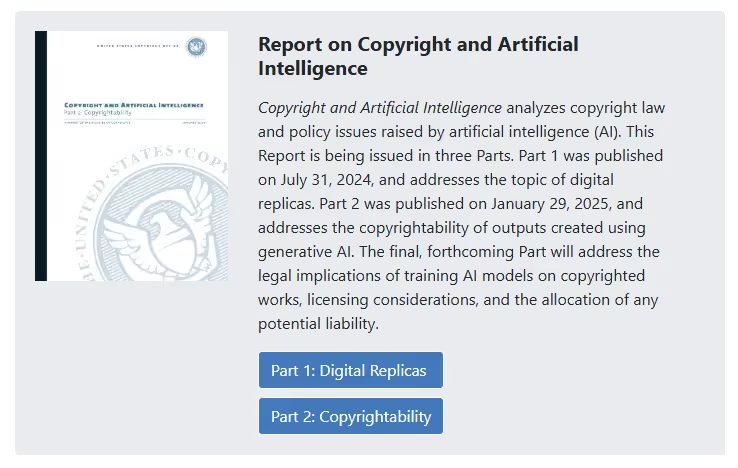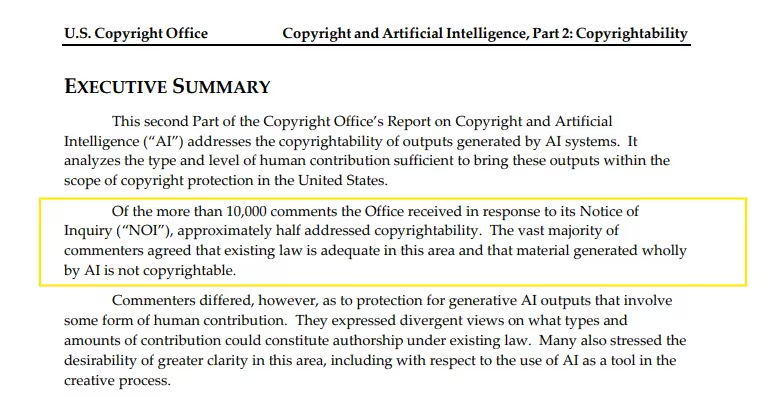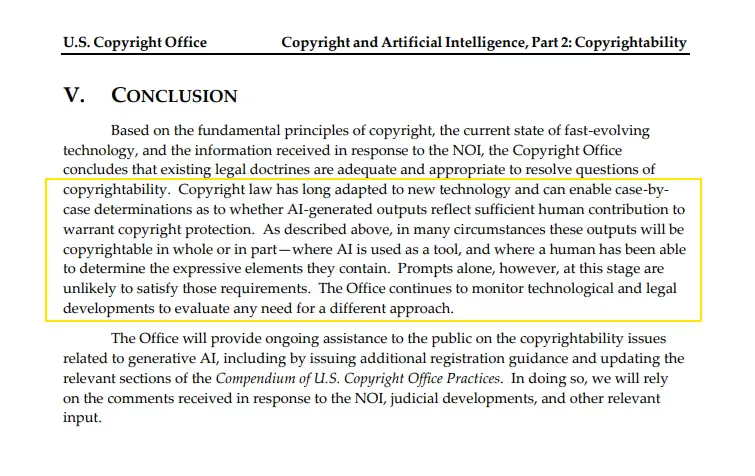In January 2025, the U.S. Copyright Office confirmed that certain types of AI-generated content can be eligible for copyright, causing plenty of content creators and consumers to wonder what the future of AI content may hold.
However, in doing so, they also highlight some important ground rules.
Here, we will break down the recently updated law, helping content creators and consumers understand what it covers and what it doesn’t.

You can find the full Copyright and Artificial Intelligence document here, but to save you some time, we’ve pulled out some of the most important points below.
On January 29th, 2025, the U.S. Copyright Office released an update to Part 2 of its Artificial Intelligence Report, focusing specifically on Copyrightability, as noted in the U.S. Copyright Office’s news release.
The document is 52 pages long and discusses in great depth the recent steps that the office has taken to tackle the rise of AI-generated content in the last few years, including an overview of its AI initiative.
It also mentions that as part of its Notice of Inquiry (NOI), which was published to obtain public input, it received over 10,000 comments, approximately 50% of which, were specifically responding to the copyrightability of AI.
Notably, it mentions that the “vast majority” of the responses indicated that if AI was generating the entire work then their comment was that it was “not copyrightable.”

It is also clear from the document that there are several concerns surrounding the growing reliance on and usage of AI for creative endeavors:
“Many commenters expressed concern about continuing the longstanding and growing use of computer-assisted tools in the creation process.” - U.S. Copyright Office
The Copyright Office noted that generative AI should be used as an assisting tool rather than as a replacement for human creativity.

However, one major question remains: what actually qualifies as copyrightable, and what doesn’t?
The quickest way to capture the key findings of the report is by reviewing the document’s conclusion, where the U.S. Copyright Office states that AI-assisted work can be copyrighted, but outright AI output and “prompts alone” can't.

As you can see, there is some important information here, most notably:
For those who use and incorporate AI into the content creation process, are creating high-quality AI-generated content and then spending the time necessary to edit it and tweak it into something entirely unique, this news can be seen as positive.
The ruling is clear that this only accounts for works that include an adequate level of human contribution such as through creative arrangements and modifications to the generated output.
Further, it describes that just prompting an AI tool isn’t enough.
Will the overall outcome of this report be positive or negative? Only time will tell.
For content creators concerned about their content getting scraped and used to train AI models, the final part of the U.S. Copyright Office’s examination into copyright and AI is going to aim to address this.
In addition, it will also be looking into licensing and where potential liabilities could be allocated.
Although the U.S. Copyright Office’s publication notes that AI tools can be used to create copyrightable works, it’s likely that the discussion around AI and copyright will continue to evolve.
There are still ongoing OpenAI and ChatGPT lawsuits surrounding content and the U.S. Copyright Office has yet to release the final part of this review.
So, there are still legislative updates to come.
What is certainly clear is that establishing whether or not something is AI-generated is more important than ever.
If you’re looking to review text for potential instances of AI to promote transparency around the content you’re publishing, use the industry-leading Originality.ai AI Detector.
Read more about the latest in AI:
